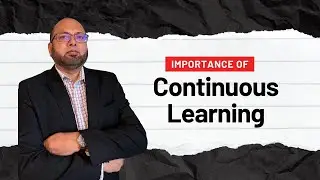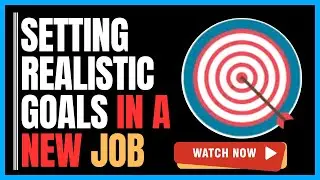Seeking Feedback at a New Job | Improve and Grow Professionally
To improve and grow professionally, there are several steps you can take depending on your field and goals. Here are some key strategies that can help:
1. Set Clear Goals
Short-term and long-term goals: Define what you want to achieve in the next 6 months, 1 year, and 5 years. This helps you stay focused and measure progress.
SMART Goals: Ensure your goals are Specific, Measurable, Achievable, Relevant, and Time-bound.
2. Enhance Your Skills
Technical skills: Stay updated with the latest tools, technologies, or practices in your industry. Take online courses, attend workshops, or get certifications to stay relevant.
Soft skills: Improve communication, leadership, time management, and emotional intelligence. These skills are essential for career advancement.
3. Seek Feedback
Constructive feedback: Ask for regular feedback from your supervisors, peers, and even subordinates. This will help identify your strengths and areas for improvement.
Self-assessment: Regularly evaluate your own performance and adjust your approach where necessary.
4. Networking
Build connections: Attend industry events, seminars, and conferences. Join professional organizations or online communities related to your field.
Mentorship: Find mentors who can guide you and provide advice based on their experiences.
5. Develop Leadership Skills
Take on more responsibility: Volunteer for challenging projects or leadership roles. This will help you grow in both skill and confidence.
Emotional intelligence: Learn to manage and understand both your emotions and those of others to effectively lead teams.
6. Stay Adaptable
Lifelong learning: Embrace change and continuous learning. Stay curious and open to learning new skills and adapting to new trends.
Resilience: Develop the ability to bounce back from setbacks. Resilience will help you navigate challenges in your career.
7. Time Management
Prioritize tasks: Use tools and techniques like the Eisenhower Matrix to organize tasks by importance and urgency.
Work-life balance: Ensure you're managing your time effectively to avoid burnout while still achieving your professional goals.
8. Embrace Innovation
Creativity and innovation: Constantly look for ways to innovate or streamline processes in your role. This will help you stand out and contribute more to your organization.
9. Stay Organized
Project management: Use tools like Trello, Asana, or Microsoft Project to manage your work more efficiently.
Goal tracking: Regularly track your progress toward your goals and adjust your strategy as needed.
10. Invest in Personal Branding
Online presence: Keep your LinkedIn profile up to date. Share content relevant to your industry and engage with others’ posts.
Portfolio: Create a portfolio showcasing your accomplishments and skills. This could be a personal website or a well-organized document.
11. Get Certified
Relevant certifications: Identify certifications that are highly regarded in your industry and pursue them. This not only enhances your credibility but also demonstrates your commitment to growth.
By consistently following these strategies, you'll not only improve your current performance but also set yourself up for long-term success in your career. Let me know if you need specific advice or tips on any of these areas!
Seeking Feedback at a New Job | Improve and Grow Professionally
Welcome to our series on:
Overcoming Nervousness and Gaining Confidence in a New Job! 🌟
Full List of Videos in this Series:
Video 1: Preparation and Research
• How to increase your Confidence New J...
Video 2: First Impressions
• Making Positive First Impressions at ...
Video 3: Building Relationships
• Building Strong Relationships at a Ne...
Video 4: Setting Realistic Goals
• Setting Realistic Goals for a New Job...
Video 5: Seeking Feedback
• Seeking Feedback at a New Job | Impro...
Video 6: Continuous Learning
• Continuous Learning at Work | Persona...
Video 7: Managing Stress & Anxiety
• Managing Stress and Anxiety at Work |...
👇🏽
In this video, we'll discuss the essential skills of:
Seeking Feedback to help you improve and grow professionally 🌟
What You'll Learn:
How to ask for feedback constructively
Learning from both positive and negative feedback
Implementing feedback to enhance your performance
Key Takeaways:
Gain insights to improve your skills and performance
Build a culture of continuous improvement and learning
Boost your confidence by embracing constructive criticism
Don't forget to like, comment, and subscribe for more career tips and advice!
📢 Join the conversation and get more support:
skool.com/agile-leaders
00:00 Introduction
00:11 Start giving feedback
00:38 Negative feedback
01:25 Constructive feedback
01:54 Learning from feedback
04:03 Encourage feedback
#NewJob
#SeekingFeedback
#CareerGrowth
#ProfessionalDevelopment
#WorkplaceSuccess
#JobTips
#CareerAdvice
#SoftSkills
#AgileLeaders































